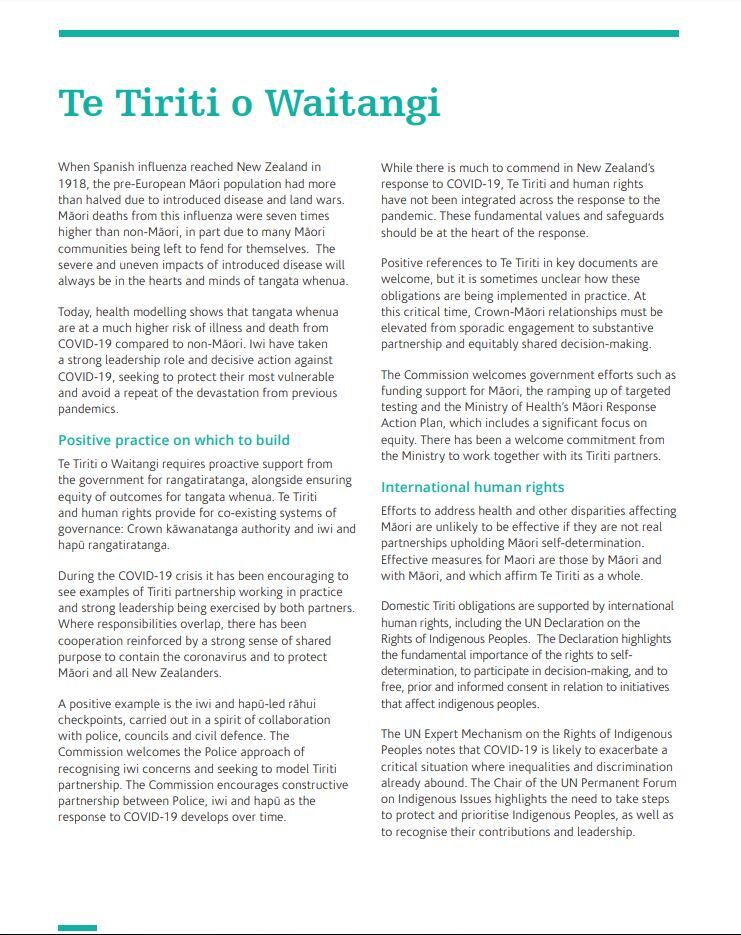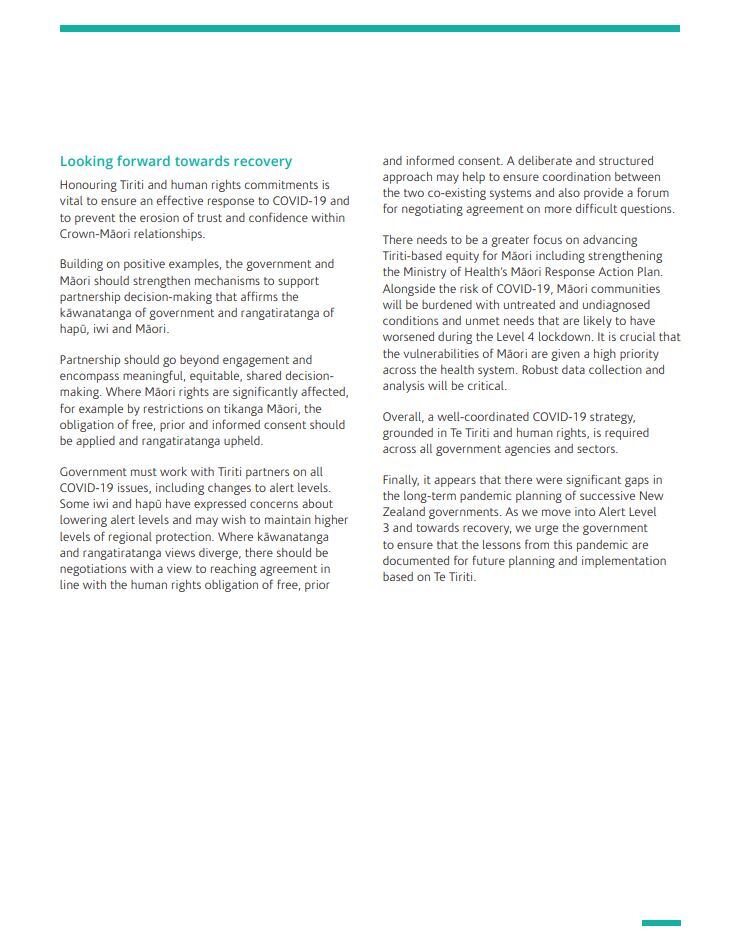Chief Human Rights Commissioner, Paul Hunt, is urging the government to reinvigorate its commitment to work in partnership with Māori as it devises and puts in place strategies for Alert Level 3 and beyond
The Human Rights Commission has written a report including a section on Te Tiriti featuring 10 areas of concern, as well as a list of recommendations for the government.
The report says the government and Māori should strengthen mechanisms to support partnership decision-making that affirms the kāwanatanga of government and rangatiratanga of hapū, iwi and Māori.
"Partnership should go beyond engagement and encompass meaningful, equitable, shared decisionmaking. Where Māori rights are significantly affected, for example by restrictions on tikanga Māori, the obligation of free, prior and informed consent should be applied and rangatiratanga upheld, the report says.
"Government must work with Tiriti partners on all COVID-19 issues, including changes to alert levels. Some iwi and hapü have expressed concerns about lowering alert levels and may wish to maintain higher levels of regional protection."
Report - Section on Te Tiriti o Waitangi

The recommendations in the report are related to Te Tiriti; PPE; access to justice; contact tracing, surveillance and data use; deprivations of liberty; racism; disability; family violence; older people; women; employment; poverty and housing.
Efforts to support Māori were noted in the report, including the Ministry of Health’s Māori Response Action Plan, but the Government was also urged to renew and reinvigorate its commitment to Te Tiriti and to work in partnership with Māori in the future.
"Honouring Tiriti and human rights commitments is vital to ensure an effective response to COVID-19 and to prevent the erosion of trust and confidence within Crown-Māori relationships,” Hunt says.
Report - Recommendations related to Te Tiriti o Waitangi

The report states that overall the country's systems of health protection and health care had performed very well but there had been some significant shortcomings. The report found one of the striking features of the government's response to COVID-19 was an almost total silence about human rights.
“Human rights do not provide magic solutions to grave crises, but they have a constructive contribution to make. They embody values - the importance of partnership, participation, protection, safety, dignity, decency, fairness, freedom, equality, respect, wellbeing, community, and responsibility, Hunt says.
“Increasingly operational, human rights can help to chart and implement an effective, equitable, balanced, sustainable medium, and long-term response to COVID-19. They can help to strike fair balances and identify proportionate responses.”
More than 30 recommendations are made in the report in the hope that the government will consider when New Zealand takes steps from Alert Level 3 towards recovery.
